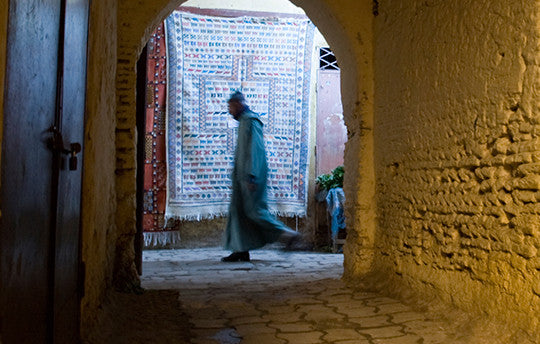Your Cart is Empty

As of 28 July, two brand new Rough Guides have been added to the World Music Network catalogue: The Rough Guide To The Music Of The Sahara and The Rough Guide To The Music Of Palestine. Often, these areas are in the media because of political turmoil or environmental issues. However, these compilation albums seek to give a voice to the creativity amongst the people that originate from these regions, celebrating their musical diversity.
 Palestine is a beautiful ancient land of faith where conflict appears to overshadow its creative voices. This unique Rough Guide explores the diverse and wonderful array of music that springs out of adversity and expresses the deep roots of Palestinian identity.
Palestine is a beautiful ancient land of faith where conflict appears to overshadow its creative voices. This unique Rough Guide explores the diverse and wonderful array of music that springs out of adversity and expresses the deep roots of Palestinian identity.
Listen to the album or order it here!
Toot Ard are a roots reggae band from the Golan Heights. Their lyrics deal with universal themes: ‘about going back to nature, on the disappearance of national borders and about the idea of freedom’. Jowan Safadi is an avant-garde rocker from Nazareth who makes ‘Hafla (Party) Rock’ but here jams on an African blues feel. Khalas are a full-fat heavy metal band and ramp it up on ‘Badek Zafi’ with thrashing guitars and a sufi-inspired ney.
Amal Murkus’ distinctive hazy vocal and passionate style is inspired by the folk music of her beloved homeland and by the great classical divas of Arabic music. Amal features again on atmospheric track ‘If I Could Go Back In Time’ with the most highly-profiled Palestinian hip-hop collective DAM. Sanaa Moussa’s ‘Wea’younha’ is inspired by Palestinian songs that date all the way back to the Ottoman period. Haya Zaatry works on a more acoustic flex on the gentle guitar-led ‘Manakir’.
Oud maestro Hosam Hayek is heard on ‘Give Me The Flute’ taken from his album Stranger In My Homeland. Awan Group features an oud alongside violin and percussion on ‘Nahawand’. Le Trio Jourban also underline the importance of the oud in Palestinian music on the driving track ‘Nawwâr’.
Shadi Zaqtan’s thoughtful contribution ‘Fi Ballad’ angles towards a more pop feel. Swinging ‘Ya Ktabna’ is contributed by Momken Band. Futuristic sharp-edged track ‘Tojann’ is by jazz guitarist and composer Michel Sajrawy from Nazareth and is his interpretation of a style he coins ‘Arab-bop’.
Palestine is a land with a uniquely scarred history and its creative voices are often overlooked in the reportage of its crises. This Rough Guide celebrates the passion and diversity of today’s thriving music scene.
 Almost as big as the USA, the vast Sahara spans Africa from the Atlantic Ocean to the Red Sea. Despite being the hottest desert on earth, it is home to millions of people whose diverse cultures and traditions create a vivid cultural landscape. This Rough Guide features the region’s best-loved artists as well as exploring beyond the arid sandscapes to reveal hidden Saharan sounds.
Almost as big as the USA, the vast Sahara spans Africa from the Atlantic Ocean to the Red Sea. Despite being the hottest desert on earth, it is home to millions of people whose diverse cultures and traditions create a vivid cultural landscape. This Rough Guide features the region’s best-loved artists as well as exploring beyond the arid sandscapes to reveal hidden Saharan sounds.
Listen to the album or order it here!
Since the ancient empires of Nubia, the Great Desert has been inhabited consistently: Phoenicians, Egyptians, Greeks, Berbers, Ottoman Turks and European colonialists are among the tribes that have lived in its realms. Among the Sahara’s present-day inhabitants are nomad Fulani, Tubu and Tuareg peoples who recall stories of ancient battles forcing their ancestors to seek refuge deep in the desert where they carved out a way of life, constantly moving onwards, respecting the moods and winds of the desert herself. Religion is largely Islamic in the region with cultural remnants of Christian, Pagan and Jewish traditions audible in local dialects and behaviours.
Religious and traditional factions across the Sahara jostle against each other making for a vivid political landscape, not without conflict. January 2012 saw the beginnings of a Tuareg uprising in northern Mali. The National Movement for the Liberation of Azawad (MNLA) were fighting for autonomous powers and had taken control of the Azawad region by April of the same year. A peace deal was signed in June 2013 but the situation remains tense. Western Sahara has been listed with the United Nations as a case of incomplete decolonization since the 1960s. The Saharawi national liberation movement, the Polisario Front, formally proclaimed the Saharawi Arab Democratic (SADR) in 1976 and continue to contest Morocco’s power in the region. Gaddafi’s ousting from the seat of power in Libya dominated the international news in 2011. In the same year, Egypt’s Tahrir square was flooded with protesters speaking out in mass against then-president Hosini Mubarak. Of course political passions inform musical expressions. Etran Finawata from Niger strive to promote unity - their band members are from both the Wodaabe and Tuareg ethnicities which have historically been rivals. Mariem Hassan is a Saharawi singer whose music pays tribute to old poems written by Ali Bachir and Lamin Allal, artists from her oppressed nation who were forced to live in exile. The title of her 2012 album El Aaiún Egdat(El Aaiún on Fire) casts a striking comment on the largest city in the Western Sahara, which is under Moroccan occupation.
Other artists bend expectations, re-working familiar pop genres into new, surprising formations. Anansy Cissé sucks up all the brilliant things about well-trodden West African ‘Desert Blues’ trope and spits them out with a new, agitated attitude. Salamat explore Nubian elements of Egyptian music headed up by percussionist Mahmoud Fadl and Djama Djigui speaks a new language with his tamani (talking drum).